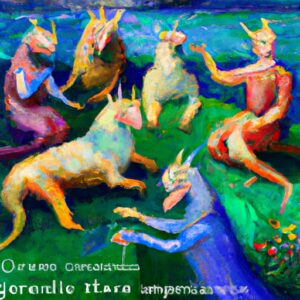What is the meaning of ogni in Italian?
In today’s short lesson, we’re going to learn how to use ogni.
You probably heard this word many times and are familiar with it. It has different meanings, so it’s ok if you don’t get it right every time.
Ogni is a widespread and versatile word. It might mean: each, all, and every. You’ll figure out what exactly it means from the context.
Let’s have a look at three different examples:
Ogni persona deve presentare questo documento.
Each person has to hand in this document.
Il treno passa ogni mezz’ora.
The train comes past every half hour.
C’era gente di ogni tipo.
There were all sorts of people.
How to use ogni as each?
The difference between each, all, and every is very subtle in English. The good thing about Italian is that you can use ogni to mean all of them.
We can translate ogni as each when referring to every one of two or more people or things identified separately.
Sometimes, you’ll be tempted to translate it as every and it’s ok.
In any case, don’t focus too much on English but try to start thinking in Italian, and it’ll be easier to understand how this language works.
Here are some examples:
Ogni suo film è un capolavoro.
Each of his movies is a masterpiece.
Ho letto ogni pagina del libro.
I read each of the pages of the book.
Vado da lei ogni giorno.
I go to hers each day.
How to use ogni as all and every?
The difference between these two words is even more subtle. But let’s focus on Italian. Just try to think that ogni might refer to every member of a set without exceptions.
Let’s have a look at some examples:
Mi sveglio alle 7 ogni mattina.
I wake up at 7 am every morning.
Ogni volta che parliamo, litighiamo.
Every time that we talk, we argue.
Vendono ogni sorta di libri.
They sell all kinds of books.
Lasciate ogni speranza voi ch’entrate.
Abandon all hope, ye who enter.
Practice with Quizlet
Here's a set of flashcards and quizzes to practice this grammar topic.What are some common expressions with ogni?
Some common expressions go together with ogni.
Here are some of them:
- ogni cosa: everything
- in ogni caso: in any case
- in ogni modo: anyway, anyhow
- da ogni parte: from everywhere
- ogni tanto: every so often, now and then
- ogni volta (che): every time (that), whenever



















